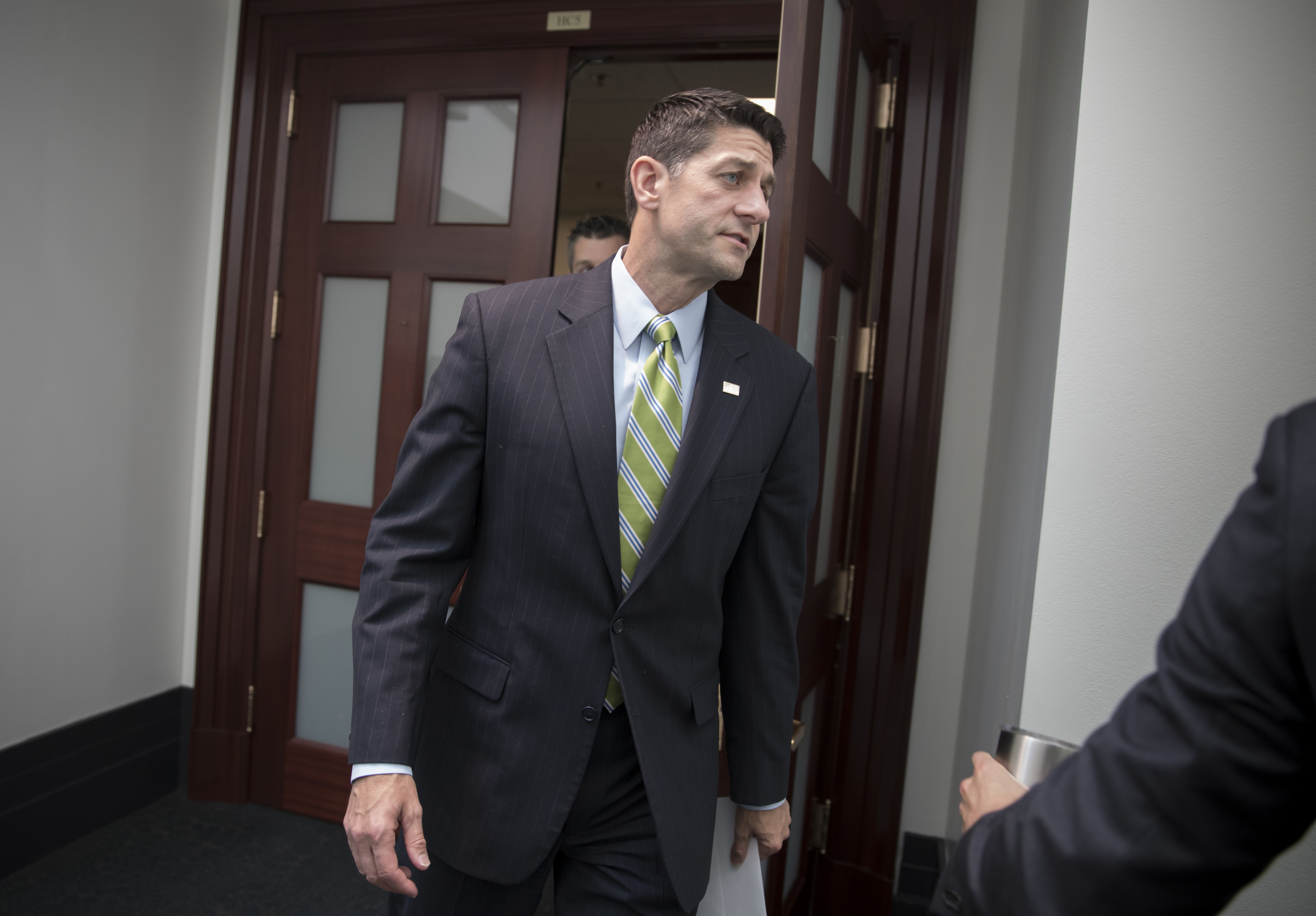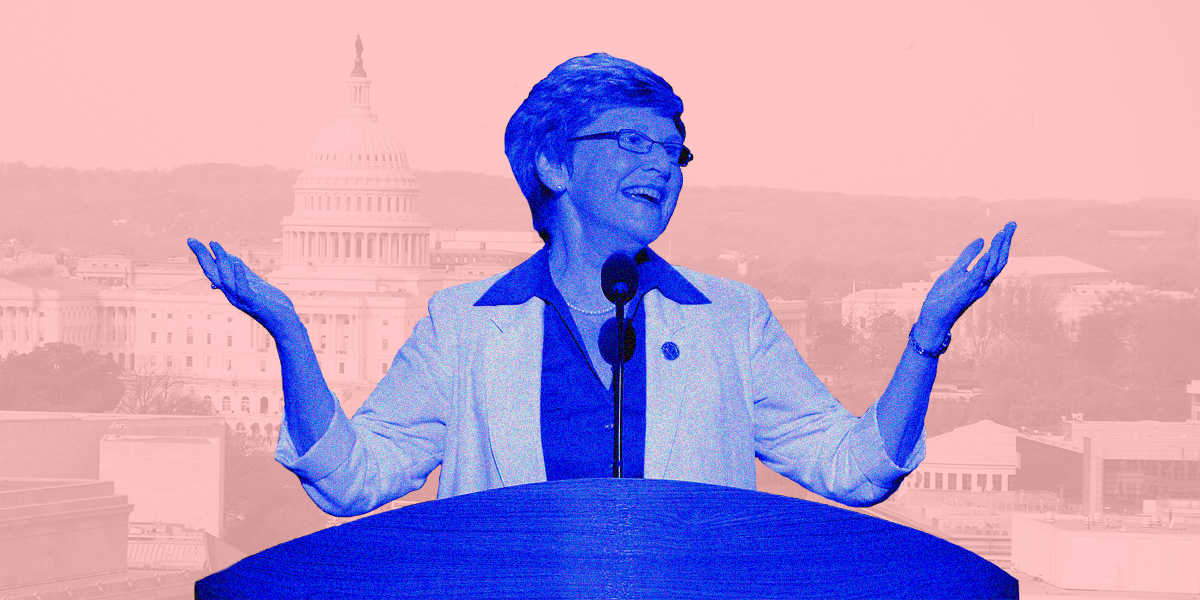House Speaker Paul Ryan (R-WI) attempted to answer a nun’s question about health care during his first town hall in two years on Monday evening, insisting that his plans to repeal the Affordable Care Act and alter tax policy are in line with the Catholic faith he claims.
But like many Catholics who have challenged Ryan on policy in recent years, the nun did not appear impressed.
The exchange occurred late Monday evening, when Sister Erica Jordan, a Dominican nun from Wisconsin, stood up and asked a question that accused Ryan and his party of failing to uphold the tenets of Catholic teaching.
“I know that you’re Catholic, as am I, and it seems to me that most of the Republicans in the Congress are not willing to stand with the poor and working class as evidenced in the recent debates on health care and the anticipated tax reform,” Jordan said. “So, I’d like to ask you: how do you see yourself upholding the church’s social teaching that has the idea that God is always on the side of the poor and dispossessed as should we be?”
Jordan’s question is a timely one, especially in Catholic circles, where the GOP effort to gut Obamacare was deeply unpopular. Catholic nuns staunchly opposed the effort, with thousands signing on to a letter in June condemning the Senate bill as “against our Catholic faith teaching.” Their sentiment was echoed by the Sisters of Mercy in another statement published a few days later, with authors arguing that “health care is a right” and the GOP bill will make the poor and vulnerable “suffer.” The Catholic Health Association, headed by Sister Carol Keehan, also rebuked the bill.
Even U.S. Conference of Catholic Bishops—which has clashed with nuns over health care legislation—spoke out against the GOP-led effort, describing it as “simply unacceptable.”
But as the crowd applauded Jordan’s question, Ryan launched into a lengthy polemic purporting that his legislative proposals are, in fact, in keeping with Catholic teaching.
“Sister, this may come as a surprise to you but I completely agree with you,” he said, as sister Jordan stared at him stone-faced. “Where we may disagree is on how to achieve that goal. We exercise prudential judgment in practicing our faith. For me — for the poor that’s key to the Catholic faith. That means mobility, economic growth, equality of opportunity.”
He went on to add: “I think we need to change our approach on fighting poverty. Instead of measuring success on how much money we spend or how many programs we create or how many people on those programs, let’s measure success and poverty on outcomes.”
His response harkens back to an argument the House Speaker has made for years; namely, that his small-government policy proposals—which often including slashing program that aid lower-income Americans—will somehow help the poor. This argument was a big part of his effort to pass a budget bill in 2012, when he claimed that small government approaches mirrored the Catholic concept of “subsidiarity.”
Yet Ryan’s version of Catholic theology—which parallels a decades-long conservative effort to craft religious ideology that blasts the “underserving poor”—was immediately met with resistance from, again, nuns. Sister Simone Campbell and her lobbying group NETWORK launched a cross-country campaign called “Nuns on the Bus” that spoke out against Ryan’s budget, which she described as “immoral.” His understand of subsidiarity was also panned in Catholic publications.
Ryan did not appear to recall any of this as he spoke on Monday evening, however. Instead, he lifted up Catholic Charities as a “model” for how the government should tackle poverty — and showed a shocking lack of knowledge about American Catholicism.
“We have to fix that, by making sure we can customize these before the to help a person get to where she is to where she wants and needs to be…The model I’m talking about is the Catholic Charities model,” he said. “Cristo Rey parish has cafeterias that do an amazing job, in spite of government, doing wrap around visits for the poor to making sure they get to where they need to be. If government will help do that I think we can go a long way in fighting poverty.”
Ryan’s response is awkward for several reasons. For starters, Cristo Rey reportedly no longer exists, having merged with another parish years ago. Moreover, Catholic Charities doesn’t do its work “in spite of” government. It relies on it: Catholic Charities USA gets nearly half of its operating budget from the federal funds, as do scores of other faith-based charities. When Ryan championed president Donald Trump’s budget proposal—which slashed welfare programs—earlier this year, an anti-hunger faith group released a study estimating that every religious congregation in America would need to raise $714,000 a year for 10 years to shoulder the burden of caring for the poor.
And once again, Ryan’s claims fail to pass the nun test. Catholic Charities head Dominican Sister Donna Markham vehemently opposed the health care bill repeal effort he started earlier this year, urging senators to reject the bill by saying its passage “will have a devastating impact on the poor, marginalized and vulnerable in our country.”
Try as he might, it seems Paul Ryan still has a nun problem.


